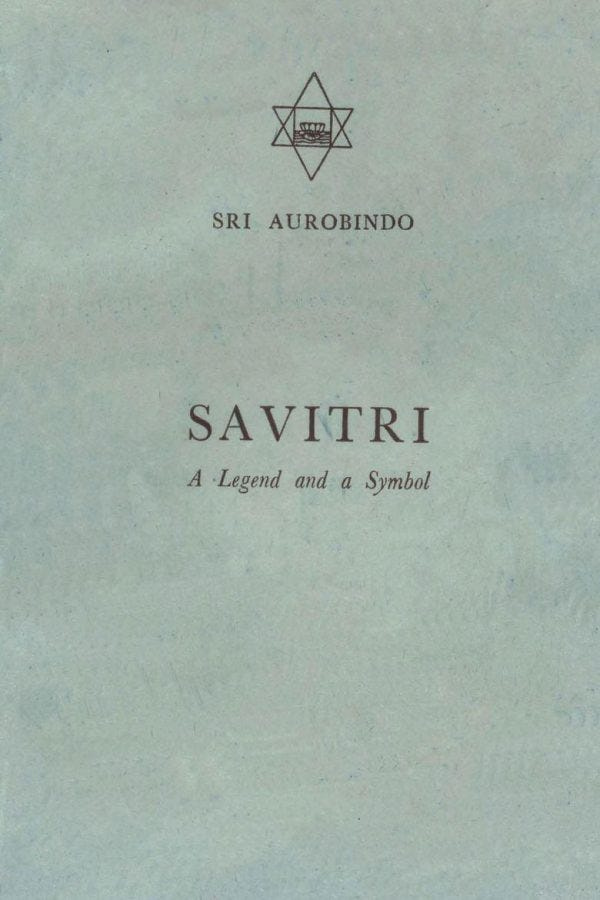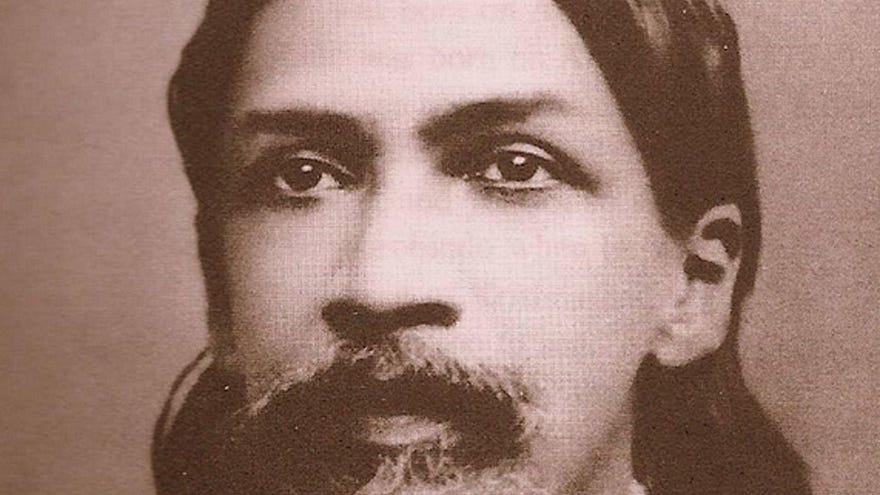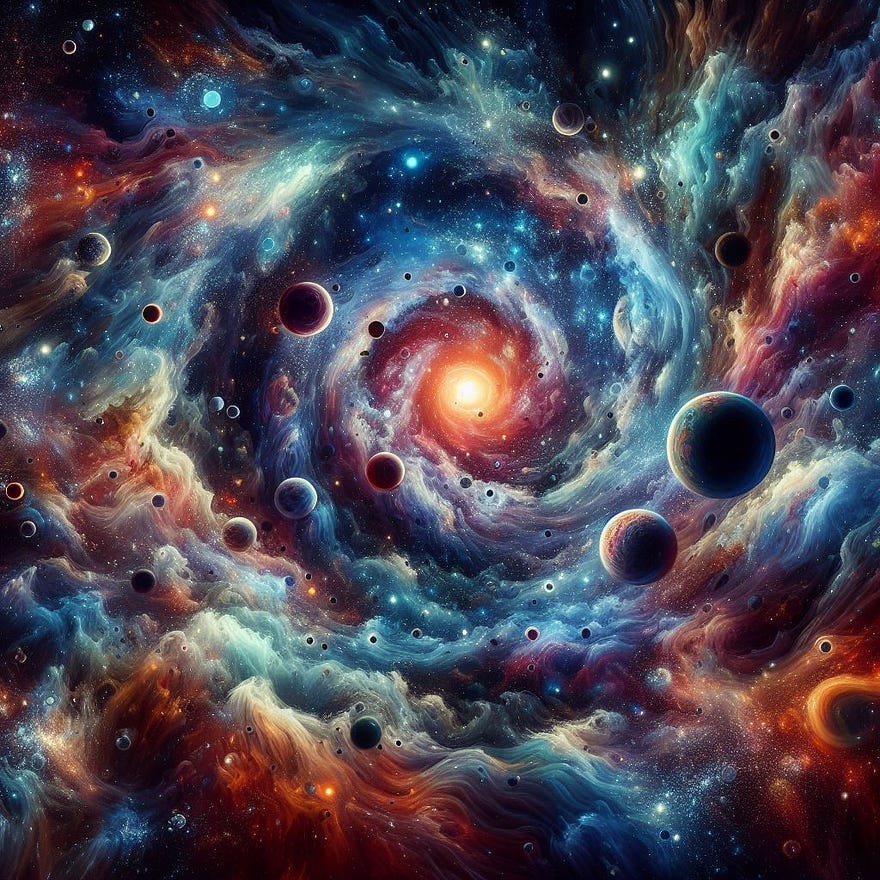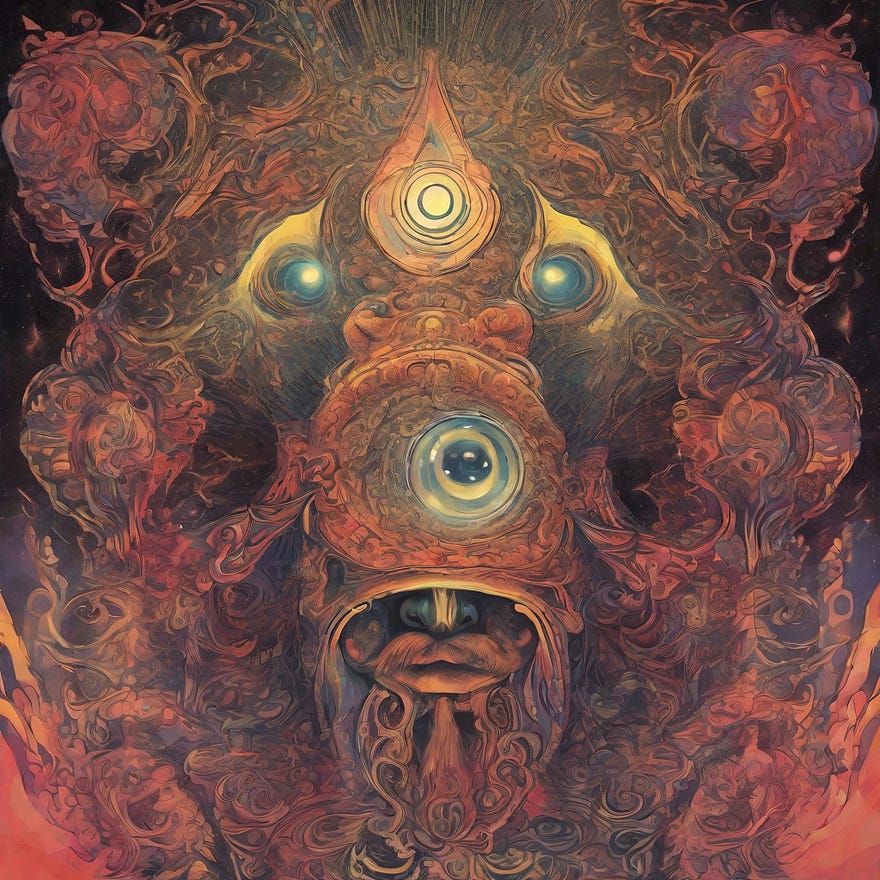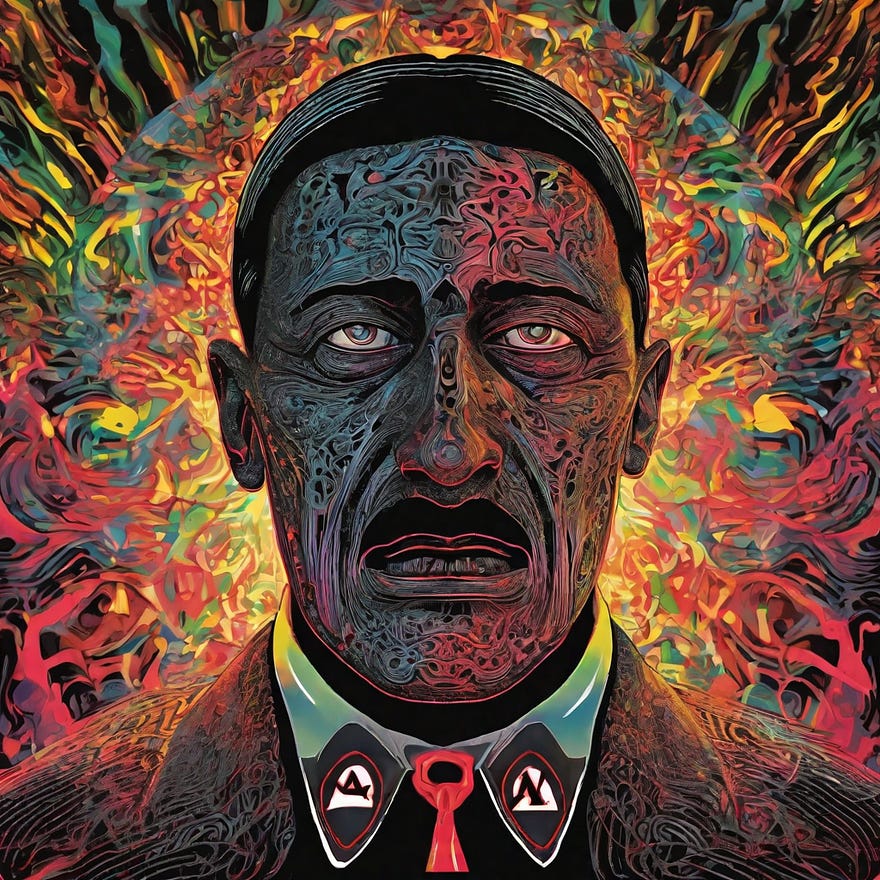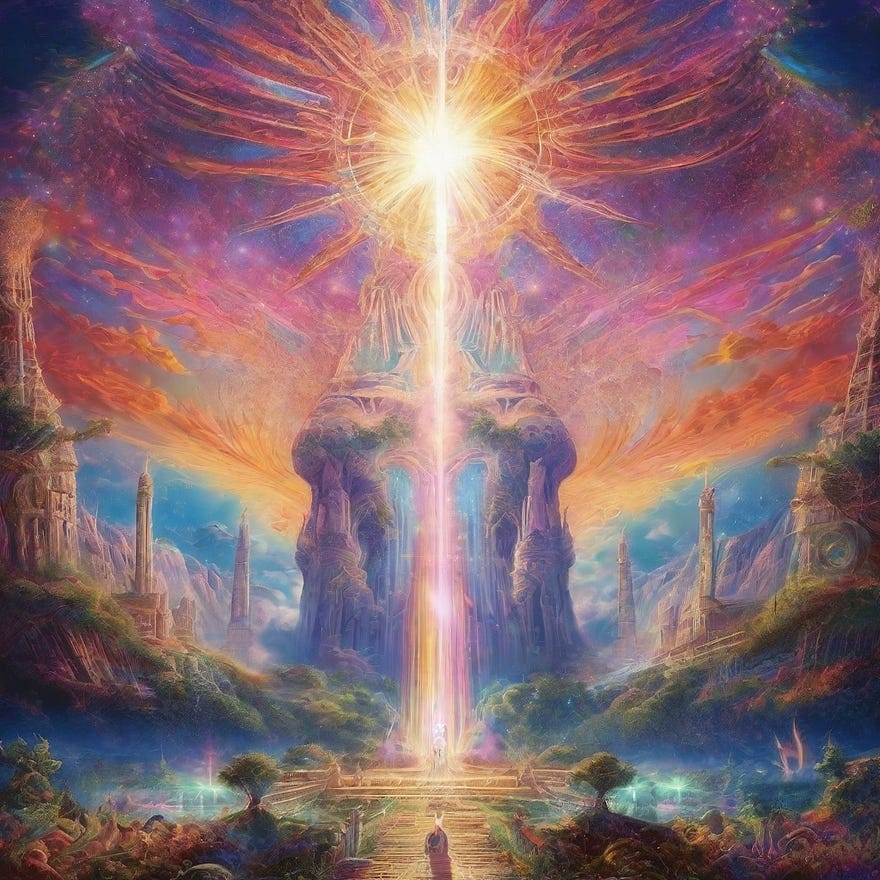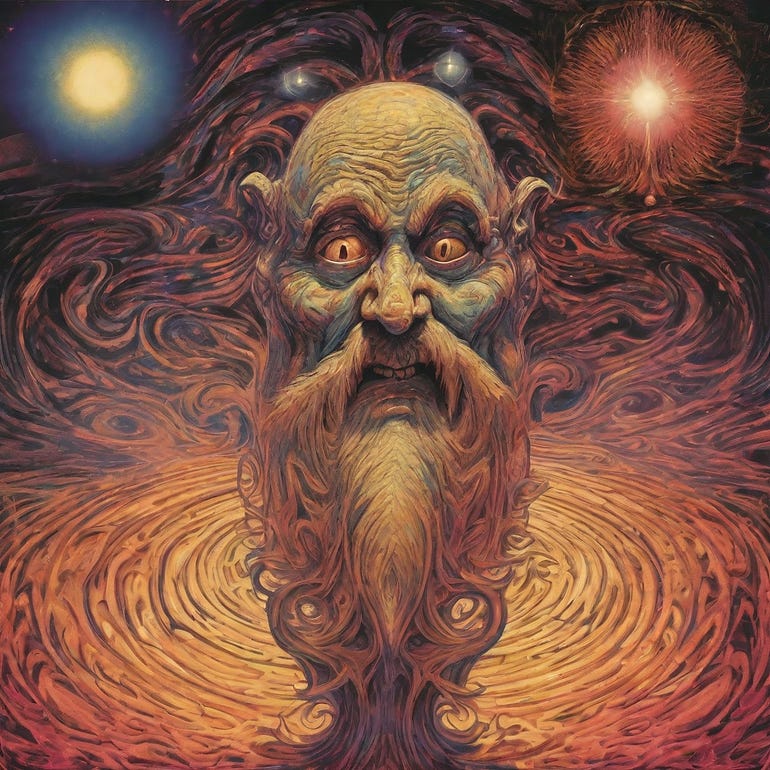Why the Evil? Why the Pain? Visionary Reflections by Sri Aurobindo.
The ego is a source of ignorance, desire, and suffering. When the ego grows huge and wants to replace the Divine, it tends to crush everyone.
Ambalal Balkrishna Purani (26 May 1894–11 December 1965) was an Indian writer and one of the main disciples and biographers of Sri Aurobindo. Purani was born in Surat (now in Gujarat, India) and was a nationalist activist when young. In 1923, after being convinced by Sri Aurobindo that he should not worry about the freedom of India since it would arrive in time, he joined Sri Aurobindo’s Ashram. Purani was his assistant from 1938 to 1950.
His works “The Life of Sri Aurobindo” and “Evening Talks with Sri Aurobindo” constitute sources of considerable importance on the life and statements of this guru. Purani travelled extensively to give lectures on Sri Aurobindo’s yogic teaching, visiting the United States in 1962. Some of his lectures are available in book form, including important works like “Savitri” and “The Life Divine.”
The poem “Savitri” by Sri Aurobindo is considered one of the most significant works of modern Indian literature. Written between 1914 and 1950, it explores the struggle between good and evil and the power of human will to overcome dark forces. In his Lectures on Savitri, Ambalal Balkrishna Purani explores some of the main themes of the poem and provides a unique perspective on its interpretation. Purani emphasizes that life has heights, like the Himalayan mountains, but it also has depths into which it falls. Such depths of life are depths to which human consciousness is subject because they have a relationship with the earth. So any human being who opens up to those vital forces will encounter their acting on earth. And it is precisely for this reason that one finds perversity, the unnatural movement of the forces of life or anti-divinity. There are people so constituted that they will never convert to anything high.
Unconsciousness
Purani explains that evil and pain exist in the world due to the opening of human beings towards negative and malignant vital forces. He emphasizes that these are not caused by the will or direct creation of a higher power, but are the indirect result of the universe coming from a state of Unconsciousness. He explains that Unconsciousness underlies the creation of this universe and as an indirect consequence of this Unconsciousness, negative and malignant forces have arisen, like the anti-divinities. These titanic and asuric forces represent the anti-divine element in life.
Understanding Unconsciousness.
The opening passage of the poem “Savitri”:
“It was the hour before the Gods awake.”
“It was the hour that precedes the awakening of the Gods.”
The first verse, the incipit of this great epic, defines the setting of the poem. It reminds us of the state of total darkness into which the first throb of creation entered.
The hour of manifestation has not yet come. The gods who preside over and participate in manifestation are still resting. Blocking the path of divine Manifestation lies motionless on the breast of Silence, the mind of Night. Alone in the expanse of atemporality, the mind of Night is huge. In that blind brooding of Night, one can perceive, so to speak, the depths of formless Infinity; it is impenetrable darkness. Everything is occupied by an unfathomable zero.
In this enigmatic darkness, something stirs. It is a movement, an insistent impulse that wants to be but does not know how that awakens Ignorance in the Unconscious. There is a thickening and a throbbing; an old unsatisfied desire seems in the depths of this Nothingness a being of a buried past has survived, forced to raise itself and its effort and its struggle in another squalid lap. An inchoate consciousness desires light and a vague sense of foresight seeks a distant change. Desire is born and Night, the Mother of all, who has hitherto been unconcerned, remembers a need to satisfy.
Imperceptibly a breach opens up in the darkness, a ray of light, of life, begins to appear; it is as if a messenger from beyond had come to seek out a lonely, sad spirit who has forgotten his past bliss. The entrance of this life light into this silent universe insinuates a call to the adventure of consciousness and joy and forces reluctant nocturnal Nature to resume life, to see and feel. There is an explosion of magnificent hues and Dawn rises in its glory on the margins of creation with its message and the promise of the Immortal Light that will come. Dawn shines for a brief period on the slender border of life, recording so to speak in earthly terms the beauty, beatitude and greatness of the divine Spirit on the point of manifesting itself.
The dawn shines briefly on the slender border of life, recording in earthly terms the beauty, beatitude and greatness of the divine Spirit on the point of manifesting itself. It casts the seed of Splendor on the dense vasts. Then appears the Form of the eternal Light goddess who opens the heavens. Seeing that the spaces are ready for her feet, she steps forward with all her omniscience and revelation. The divine breath, however, cannot last long because the conditions of mortal earth are not ready for its permanence. It withdraws leaving behind a living memory of its Presence, a spiritual Beauty and an aspiration to its certain birth in the future.
Why the Evil?
Evil exists because of the ego. The ego is the part of the human personality that is separated from the Divine and identifies with the body, mind, and vital. The ego is a source of ignorance, desire, and suffering. When the ego grows huge and wants to replace the Divine, it tends to crush everyone. This is what it does because it is not omnipotent. The ego is only a great power achieved through organization and domination over the will of the community, creating the impression of something similar to omnipotence. The ego tries to feel omnipotent, but it is not. The ego is huge but not omnipotent and infinite.
Evil is the result of the ego’s resistance to the Divine’s plan for the evolution of consciousness. The evil is the opposition to the Divine’s grace, love, and light. The evil is the distortion of the Divine’s truth, beauty, and harmony. The evil is the denial of the Divine’s presence, power, and joy.
The evil can be overcome by the surrender of the ego to the Divine. The ego can be transformed by Divine grace, love, and light. The ego can be aligned with Divine truth, beauty, and harmony. The ego can be fulfilled by the Divine presence, power, and joy. The ego tries to feel omnipotent, but it is not. The ego is huge but not omnipotent and infinite.
Significantly, Purani cites Hitler as a sinister incarnation of this dynamic. In the poem, Aurobindo vividly describes various demonic entities that seek to oppose or replace divine action. These are metaphors for all those parts of the human ego that resist spiritual transformation. Only when the ego agrees to submit and sacrifice itself to the Divine can authentic, compassionate and regenerative power manifest.
Ultimately, for Aurobindo, true omnipotence belongs only to the Divine: the distorted ego can at most simulate it temporarily, in a distorted and violent way. The key lies in realigning our consciousness with the universal Divine Consciousness, melting the limited ego into the infinite Self. This inner transformation makes possible the emergence of a compassionate and non-violent omnipotence.
Why the Pain?
Purani also presents the idea that each of us is the author of his pain, as expressed in Sri Aurobindo’s poem “Savitri.” He compares this concept to the work of a doctor who, operating on a patient, knows that while the operation may be painful, it is necessary to cure the underlying illness. The doctor inflicts controlled suffering because he understands on a deeper level that it will ultimately heal the patient.
Similarly, our souls choose situations that manifest as suffering due to our human limitations, but the soul embraces this from a higher perspective knowing the pain will serve as a passage to liberation from those very limitations. Just as the doctor’s operation appears painfully pointless from the limited view of the patient but is revealed as purposeful from the doctor’s more comprehensive understanding, so too our soul-chosen ordeals seem needlessly cruel from the surface but have an underlying logic leading to enlightened freedom when seen from the soul’s transcendent vision.
Thus, while the ego protests pointlessly against life’s pains, the soul authors our difficult situations with full intentionality, seeing in suffering a transitional phase on the journey to self-knowledge, wisdom, and oneness with the Divine.
On the ego as a source of evil:
“All here where each thing seems its lonely self Are figures of the sole transcendent One: Only by him they are, his breath is their life; An unseen Presence moulds the oblivious clay. A playmate in the mighty Mother’s game, One came upon the dubious whirling globe To hide from his own eyes the Eternal’s thought And guard the spirit’s radical regalia Lest naked it should lose his robes of light.”
Source: Savitri by Sri Aurobindo, Book II Canto V
In my prose:
“All beings here see themselves as separate. But they are actually one with the Divine. Their life comes from the Divine’s breath. An unseen Divine Presence shapes all things. A being came into the world to hide the Divine’s thought from itself. It wants to guard its own ego instead of recognizing its oneness with the Divine light.”
This passage suggests that evil and ignorance exist because beings in the world falsely identify with separated egos rather than recognizing their oneness in the Divine.
On the ego trying to replace the Divine:
“His nature’s might seemed now an infant’s grasp To a Titan’s force that needed no device, And a faint and struggling possibility Shadow of a bright tremendous Permanence Whose right, whose native dynamic claimed the world.”
Source: Savitri by Sri Aurobindo, Book II Canto IX
In my prose:
“The ego seems weak compared to the Divine’s mighty power. The ego grasps for greatness, but is only a faint shadow struggling against the Divine’s tremendous permanent strength.”
This depicts the ego grasping after a false sense of greatness when compared to the true divine omnipotence.
On the soul embracing suffering:
“Although thy grasp, O Death, stings worse than Hell, The dreadful touch of sorrow and of pain Shall never compel my novice heart to cry Or sue for help to man’s inadequate force.”
Source: Savitri by Sri Aurobindo, Book V Canto II
In my prose:
“Death’s sting hurts worse than Hell. But sorrow and pain will never make my young heart cry out for help from the inadequate human force.”
This suggests the attitude of facing suffering without protesting, seeing even death and sorrow as part of the soul’s destiny.
Aurobindo suggests we should accept, rather than protest, the suffering and sorrow that is part of life’s journey for the soul. Even painful experiences like illness, loss or death should be embraced rather than resisted.
He sees these difficulties not as punishments or meaningless evils, but as necessary steps to help the soul grow wiser and move closer towards enlightenment. Like a novice being initiated through difficult trials into a great spiritual tradition, the soul must be willing to undergo its destined ordeals alone, without begging to be rescued.
The attitude Aurobindo recommends is radical surrender — fully consenting to one’s fate rather than angrily rejecting it. When faced even with death and hellish torment, the developing soul maintains a faithful conviction that behind these temporary shadows, a higher divine light guides us through wisdom gained by experience.
In this perspective, suffering is no longer seen as evil but as an essential, purifying fire that refines and frees the soul, burning away limiting traits to uncover the soul’s innate spiritual nobility. The more difficulties confronted with courage and surrender, the faster the egoistic habits fall away to reveal one’s immortal true self, culminating in delight and fearless freedom.
By willingly shouldering our destined share of suffering, without dramatics of protest or complaint, Aurobindo suggests we can accelerate the soul’s liberation from ignorance of its eternal nature. Aligning our consciousness with this outlook, against intuitive resistance, may be the swiftest path for humanity to resolve its underlying angst — the nagging doubt about life’s real purpose and meaning.
I have woven tales to share, for any who care to read them. My books await you on Google Books. Check also my stories on Medium.com.
I would be honoured if you considered subscribing to the Premium Contents of my Vedanta Substack and leaving feedback, comments, and suggestions both on this page and by writing to me at cosmicdancerpodcast@gmail.com.
Thank you for your precious attention.




